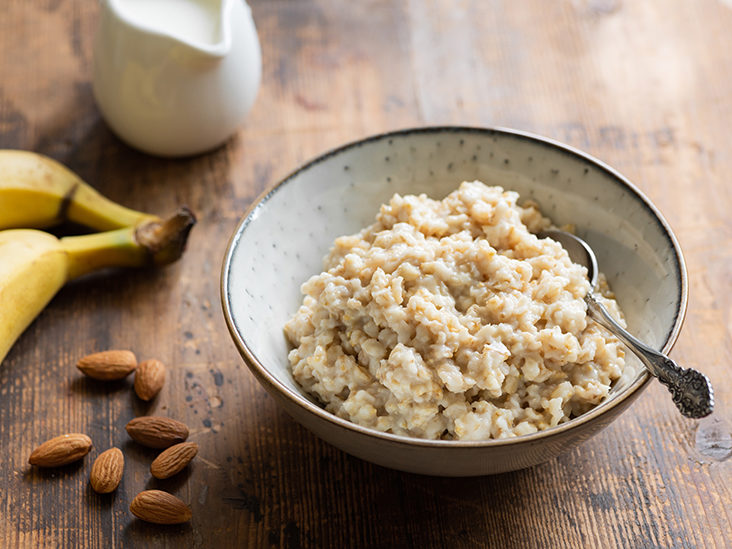Which Dietary Fiber Supplement Is Best For Your Diet?
Several studies on the effects of insoluble and soluble fiber supplements have shown that they do have a positive effect on gut function; when these isolated psyllium fibers are taken in supplement form, they can help in slowing digestion and making bowel movements easier.
In addition to adding fiber to normal daily intake, people use fiber supplements to improve gut quality and regularity; for example, these supplements are sometimes recommended to older adults to prevent periods when appetite is too low to maintain normal constipation or bloating with eating habits. There are various forms of fiber supplements that can help those looking to increase the amount of fiber in their diet if they don’t eat or don’t get enough food. While it is recommended that you meet your fiber needs by eating plant-based fiber foods, fiber supplements can help you meet the recommended daily intake. Supplement Safety While there is no evidence that fiber supplements are harmful, it is best to get fiber from natural sources so you can take better advantage of the health benefits that dietary fiber provides.
In general, it’s best to get fiber from whole foods, including fruits, vegetables, and whole grains, because they contain extra vitamins and minerals that fiber supplements can’t provide. It’s best to get fiber from food because, unlike fiber-rich foods, supplements do not contain vitamins, minerals, and other nutrients. However, people with certain dietary restrictions, such as gluten intolerance, or those who have difficulty including enough plant-based foods in their diets, may benefit from nutritional supplements.
However, it is important to note that while fiber supplements can help you meet your daily fiber requirement, you also need to find ways to include fiber-rich foods (fruits, vegetables, beans) in your diet. It is ideal for getting fiber from dietary sources because these foods are rich in other nutrients your body needs. For most people, especially those who want to take advantage of the heart-protecting properties of fiber, it is best to get fiber from food. Functional foods like chia and flax seeds are also considered high fiber options if you are looking for an alternative to the typical supplements on the market.
With so many options, our nutritionist has compiled the best foods to keep your fiber intake high. Because a fortified food or supplement usually only contains one or two types of fiber, finding a product that contains functional fiber is key to addressing your concerns effectively. Conclusions Despite the general consensus that fiber is “good,” it is important to understand the difference between dietary fiber replacement, which is integral and intact in whole foods, and an isolated fiber supplement. It is unclear whether fiber found in supplements or fortified foods provides the same health benefits as natural sources.
However, it is also clear so far that fiber supplements do not appear to provide any of the other general health benefits that are known to accompany sufficient fiber from the foods we eat. This claim is also in line with the Academy of Nutrition and Dietetics’ final paper on the effects of dietary fiber on health, in which they state, “Few fiber supplements have been studied for physiological effectiveness, so the best advice is to consume dietary fiber.” fiber intake should be 25 to 30 grams per day from food, not supplements.
According to the Harvard School of Public Health, the recommended daily intake of fiber is 20-30 grams (g). However, as mentioned above, for most Americans, that number is closer to 15 grams of fiber per day. A daily intake of 40 grams or more can interfere with the absorption of other nutrients and active ingredients in the drug, and while this can happen with both dietary fibre and supplements, it’s easier to overdose.
If your body isn’t used to getting enough fiber, taking supplements can make digestion difficult, leading to unpleasant side effects. Additionally, if you consume too much fiber (either through supplements or food), you may increase the duration and severity of the above symptoms, says Kari Pitts, a registered dietitian at Preg Appetit. Keep in mind that this may be helpful when using fibre supplements to relieve occasional constipation, but if you find yourself relying on fiber supplements to relieve more frequent episodes of constipation, work with your healthcare provider to find out The root cause is important.
Your doctor will advise you on what type of fiber is best for your gut health. Benefiber is an over-the-counter supplement that is not usually covered by commercial insurance or Medicare. Benefiber and Metamucil powders are gluten-free, although some other products made by these brands may be gluten-free.

Patients with celiac disease should read labels and consult with their physicians to ensure that the fiber products they choose are safe. Since the term “fiber supplement” implies that regular (daily) consumption will provide essentially the same health benefits as a high-fiber diet, it is reasonable to ask about evidence of clinically significant health benefits before choosing/recommending dietary fiber supplements.
But with the growing market for fiber-rich foods and supplements, fiber is now also known as dietary fiber or functional fiber, depending on the source of the fiber in the food. There are many different sources of fiber, such as wheat bran (insoluble), inulin (soluble), psyllium (soluble), and beta-glucan (soluble), to name a few. A mix of soluble and insoluble fiber aids general digestion.
Insoluble fiber increases stool bulk and also helps to balance the pH level in the intestines. Soluble fiber, which dissolves in water as a gel and is found in foods like oatmeal, nuts, and beans, helps control blood sugar levels and may lower cholesterol levels. Soluble fiber such as psyllium husk, guar gum, flaxseed, and oat bran may help lower cholesterol when added to a diet low in saturated fat and low in cholesterol.